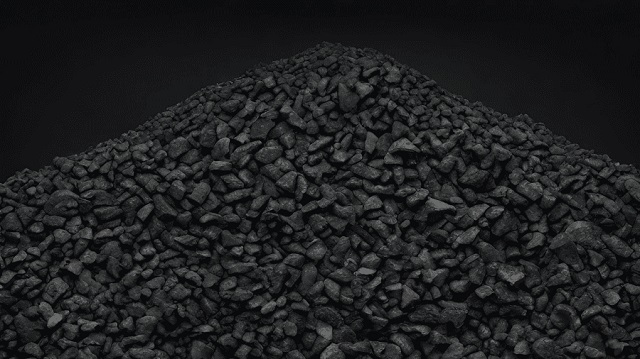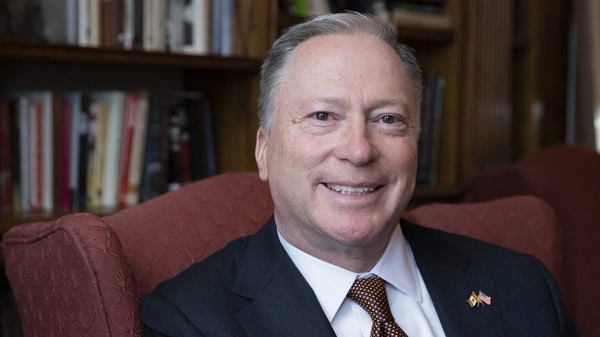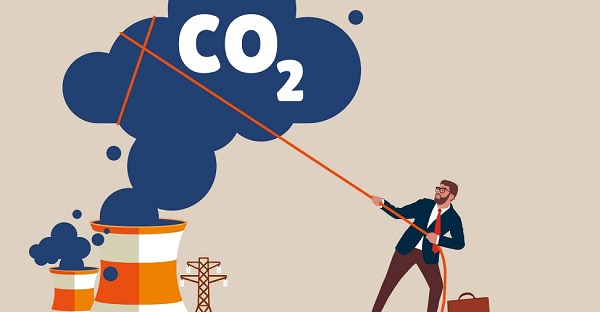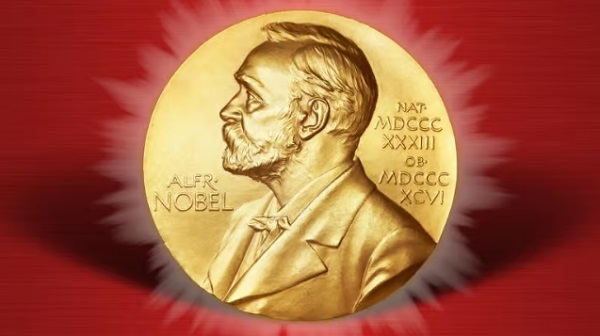Energy
Glencore-Teck deal reveals the irony of coal: Profitable and vital, yet endlessly shunned

From the MacDonald Laurier Institute
By Heather Exner-Pirot
Coal is not going anywhere, and while some countries will benefit, Canada will not be among them
In many ways, the US$8.9-billion deal Glencore has struck for Teck Resources’ coal assets represents an elegant split that plays to each company’s strengths.
Teck, the Canadian miner, can now focus on its core base metals business, in particular copper, as it bets on strong returns in the years to come. Swiss commodities giant Glencore can build up its coal empire, adding the steelmaking coal assets to its vast thermal coal trade.
But the deal also reveals how coal has its own set of rules. Despite how profitable and strategic Teck’s coal resources are, they will soon come under foreign control. It is hard to imagine this unfolding the same way for any other commodity.
Coal is an essential, ubiquitous material. It is the workhorse of the global power sector, accounting for more than a third of global electricity generation. And it is indispensable in steelmaking. The burning of coke, a coal-based fuel, produces the carbon monoxide needed to convert iron ore into a liquid, alongside high temperatures. The majority of steel in the world is made with coking coal, also known as metallurgical coal.
Owing to its carbon intensity, it has a terrible reputation. Investors and shareholders, not to mention Western governments, shun it. Teck’s intention to spin off its coal business is linked to shareholder desires to see a decoupling of its metals and coal businesses out of environmental concerns, which have weighed on its valuation. Even as it pursues Teck’s coal assets, Glencore is doing the same; it plans to separate its metals and coal businesses within two years and sought Teck’s premium steelmaking coal to make its other coal holdings more palatable.
But shareholder distaste for coal is increasingly divorced from its economics. Coal is still highly profitable. Last year witnessed high prices and record demand, in part owing to the fallout from the Russian invasion of Ukraine. Both Teck and Glencore benefited greatly. Teck earned record profits of $4.9-billion, with coal accounting for 75 per cent of that. Glencore’s core profit rose 60 per cent to a record US$34.1-billion, more than half of which came from coal production.
Teck’s steelmaking coal assets in B.C.’s Elk Valley are world-class – high-quality, with decades of reserves and a low carbon intensity relative to other deposits. Glencore’s deal for them will see it partnering with Japan’s Nippon Steel and South Korea’s PISCO, who will take minority stakes. The fact that the deal includes two of the world’s biggest steel producers is evidence that these coal assets have long-term customers. This deal is not about Teck unloading a bad asset; it is about removing the ESG noose around its neck.
That’s poor justification for letting such vital assets end up in foreign hands. Yet the federal government will likely let the deal happen.
Federal scrutiny of foreign investment and takeovers in our domestic mining sector has grown of late, as the need for friendly sources of critical minerals grows. As The Globe and Mail reported last month, Canadian firms have mainly been the targets, rather than pursuers, of acquisitions in the sector in the past decade. Canada has toughened the Investment Canada Act as a result.
While the Teck-Glencore deal will raise similar concerns, it has been designed to skirt them. Teck’s news release could have been written by Ottawa. It aligns with the federal government’s recent Critical Minerals Strategy and commits to remaining a Canadian-based miner focused on “future-oriented metals,” “an electric vehicle battery recycling facility” and support for “junior Canadian mining and exploration companies.” It also preserves B.C.’s coal mining jobs and revenues.
There’s a parallel universe where a G7 country protects its most exquisite metallurgical coal deposit, required to produce a critical material for any advanced economy, energy system or military. That introduces policy to reshore and build up its domestic steel industry in an era of growing geopolitical turbulence.
The world in 2023 is not this place. And Canada is not that G7 country. Indeed, the world view of the current federal and B.C. governments sees the decline of coal as both imminent and necessary. There is no way they will make the argument that the material is a strategic resource that must remain under Canadian ownership.
But coal is not going anywhere. Some countries will benefit, economically and strategically, from controlling it. Canada will not be among them.
Heather Exner-Pirot is the director of energy, natural resources and environment at the Macdonald-Laurier Institute.
Alberta
Enbridge CEO says ‘there’s a good reason’ for Alberta to champion new oil pipeline

Enbridge CEO Greg Ebel. The company’s extensive pipeline network transports about 30 per cent of the oil produced in North America and nearly 20 per cent of the natural gas consumed in the United States. Photo courtesy Enbridge
From the Canadian Energy Centre
B.C. tanker ban an example of federal rules that have to change
The CEO of North America’s largest pipeline operator says Alberta’s move to champion a new oil pipeline to B.C.’s north coast makes sense.
“There’s a good reason the Alberta government has become proponent of a pipeline to the north coast of B.C.,” Enbridge CEO Greg Ebel told the Empire Club of Canada in Toronto the day after Alberta’s announcement.
“The previous [federal] government’s tanker ban effectively makes that export pipeline illegal. No company would build a pipeline to nowhere.”
It’s a big lost opportunity. With short shipping times to Asia, where oil demand is growing, ports on B.C.’s north coast offer a strong business case for Canadian exports. But only if tankers are allowed.
A new pipeline could generate economic benefits across Canada and, under Alberta’s plan, drive economic reconciliation with Indigenous communities.
Ebel said the tanker ban is an example of how policies have to change to allow Canada to maximize its economic potential.
Repealing the legislation is at the top of the list of needed changes Ebel and 94 other energy CEOs sent in a letter to Prime Minister Mark Carney in mid-September.
The federal government’s commitment to the tanker ban under former Prime Minister Justin Trudeau was a key factor in the cancellation of Enbridge’s Northern Gateway pipeline.
That project was originally targeted to go into service around 2016, with capacity to ship 525,000 barrels per day of Canadian oil to Asia.
“We have tried to build nation-building pipelines, and we have the scars to prove it. Five hundred million scars, to be quite honest,” Ebel said, referencing investment the company and its shareholders made advancing the project.
“Those are pensioners and retail investors and employees that took on that risk, and it was difficult,” he said.
For an industry proponent to step up to lead a new Canadian oil export pipeline, it would likely require “overwhelming government support and regulatory overhaul,” BMO Capital Markets said earlier this year.
Energy companies want to build in Canada, Ebel said.
“The energy sector is ready to invest, ready to partner, partner with Indigenous nations and deliver for the country,” he said.
“None of us is calling for weaker environmental oversight. Instead, we are urging government to adopt smarter, clearer, faster processes so that we can attract investment, take risks and build for tomorrow.”
This is the time for Canadians “to remind ourselves we should be the best at this,” Ebel said.
“We should lead the way and show the world how it’s done: wisely, responsibly, efficiently and effectively.”
With input from a technical advisory group that includes pipeline leaders and Indigenous relations experts, Alberta will undertake pre-feasibility work to identify the pipeline’s potential route and size, estimate costs, and begin early Indigenous engagement and partnership efforts.
The province aims to submit an application to the Federal Major Projects Office by spring 2026.
Alberta
The Technical Pitfalls and Political Perils of “Decarbonized” Oil

By Ron Wallace
The term “decarbonized oil” is popping up more and more in discussions of Canada’s energy politics. The concept refers to capturing and storing carbon dioxide (CO₂) generated during oil production and processing, thereby reducing greenhouse gas emissions, in order to support the continued strength of Canada’s oil and natural sector, the nation’s number-one export earner and crucial to the economies of Alberta and Saskatchewan. Projects like the Weyburn Carbon Capture, Utilization and Sequestration Project in Saskatchewan have demonstrated the idea’s technical feasibility by sequestering 1.7 million tonnes of CO₂ annually while producing incremental oil.
The key question now is whether this type of process can be dramatically scaled up – by anywhere from six to over 20 times – to facilitate what Alberta Premier Danielle Smith has termed a “grand bargain”: using carbon capture and storage (CCS) to gain a greenlight from the federal government for a new oil export line to the West Coast, enabling Alberta to continue growing oil production and generating jobs while advancing Ottawa’s climate goals. Prime Minister Mark Carney may be prone to hedging and ambiguity, but he has now made it clear that any such pipeline will indeed be contingent on Alberta proving it can “decarbonize” its oil
production.
The Pathways Alliance, a group of six producers representing 95% of Canada’s oil sands production, has designed a $16.5 billion CCS network to capture and store CO₂ from up to 20 facilities, aiming for 11 million tonnes per year in Phase 1 and a breathtaking 40 million tonnes in Phase 2. Pathways is intended to help build consensus in favour of a new oil export pipeline that could enable up to 25% growth in Alberta’s oil production – generating possibly $20 billion per year in export revenues.
While credible critics, including the Institute for Energy Economics and Financial Analysis (IEEFA) and energy economist Jennifer Considine, highlight the high costs, uncertain revenues and poor returns from several other attempts at large-scale CCS, Alberta’s UCP government appears to view it as the way out of its current impasse with Ottawa. It believes the profits generated from exports of Alberta’s decarbonized oil could themselves help finance the CCS facilities required for the “grand bargain” to be sealed.
Smith has been keeping up the political pressure, recently announcing that Alberta will fund and lead the effort to submit a formal pipeline application to the Carney government’s new Major Projects Office. Major obstacles remain, but none is more serious than Carney maintaining predecessor Justin Trudeau’s suite of anti-energy policies, particularly the draft oil and natural gas emissions cap, as part of his government’s intention to meet net-zero targets by 2050 (although Carney has recently indicated some flexibility in this view). Smith argues that this is effectively an “unconstitutional” production cap that threatens Alberta’s economic future, vowing to challenge it legally if Carney doesn’t shelve it.
Smith’s government at the same time is pursuing a more conciliatory tactic, offering to help advance federal climate objectives through CCS in order to speed up pipeline approvals under Carney’s Bill C-5. In this track, there is a question as to whether Alberta may be walking into an economic and technological trap that it will regret.
That is because the “grand bargain” would create two different classes of oil in Canada, operating under different sets of regulations and resulting in different cost structures. Western Canada’s crude oil producers would shoulder costly and technically challenging decarbonization requirements – plus the threat of federal veto over any new oil projects that weren’t similarly “decarbonized”. Canadian-produced oil would enter international export markets at a significant if not ruinous competitive disadvantage, risking not only profitability but market share. Eastern Canada’s oil refiners, meanwhile, would remain free to import fully “carbonized”
oil at the lowest prices they could get from countries with significantly looser environmental standards.
The Alberta oil sands currently generate 58% of Canada’s total oil output. Data from December 2023 shows Alberta producing a record 4.53 million barrels per day as major oil export pipelines including Trans Mountain, Keystone and the Enbridge Mainline operated at near capacity. The same year, Eastern Canada imported on average about 490,000 barrels per day by pipeline and sea from the United States (72.4%), Nigeria (12.9%) and Saudi Arabia (10.7%). Since 1988, imports by marine terminals along the St. Lawrence River have exceeded $228 billion, while imports by New Brunswick’s Irving Oil Ltd. refinery totalled $136 billion from 1988 to 2020.
The economic viability of large-scale CCS projects remains completely unproven; indeed, attempts to date in other jurisdictions have performed poorly. Attempting to “decarbonize” Alberta’s oil, then, makes little economic sense; it appears to be based more on the Carney government’s ideological objectives set to achieve global climate objectives.
The question thus becomes why Alberta is agreeing to a policy that could trap its taxpayers in a hugely expensive and unfair system that could imperil consideration of any new pipelines for Canadian oil exports, especially when private capital already largely remains on the sidelines.
Not only Albertans but Canadians generally need to carefully reconsider any “grand bargain” that hinges on “decarbonization” of western Canadian oil, because doing so threatens the economic viability of Alberta oil production and associated export pipelines – without meaningfully reducing global CO 2 emissions. And if industry proves unable to raise the vast capital required to construct the CCS projects, while lacking the cash flow to cover the steep ongoing costs needed to operate them, then where is the money to come from? At a time when Canada’s fiscal trajectory is so worrisome, the shortfall had better not be made up through public subsidies.
Even worse than the yawning fiscal risks, such an approach risks splitting the country into two economic zones: a West burdened by costly decarbonization requirements making Alberta’s oil some of the world’s least profitable to produce, and an East benefiting as before from cheaper imported oil. This is hardly conducive to national unity. It is time for Alberta to reconsider the “grand bargain”.
The original, full-length version of this article was recently published in C2C Journal.
Ron Wallace is a former Member of the National Energy Board.
-

 Alberta1 day ago
Alberta1 day agoFact, fiction, and the pipeline that’s paying Canada’s rent
-

 2025 Federal Election1 day ago
2025 Federal Election1 day agoProtestor Behind ‘Longest Ballot’ Chaos targeting Poilievre pontificates to Commons Committee
-

 Business2 days ago
Business2 days agoUN, Gates Foundation push for digital ID across 50 nations by 2028
-

 Brownstone Institute2 days ago
Brownstone Institute2 days agoTrump Covets the Nobel Peace Prize
-

 COVID-192 days ago
COVID-192 days agoThe Trials of Liberty: What the Truckers Taught Canada About Power and Protest
-

 Business2 days ago
Business2 days agoTruckers see pay surge as ICE sweeps illegal drivers off U.S. highways
-

 International2 days ago
International2 days agoHamas releases all living hostages under Trump peace plan
-

 Energy13 hours ago
Energy13 hours agoIndigenous Communities Support Pipelines, Why No One Talks About That






